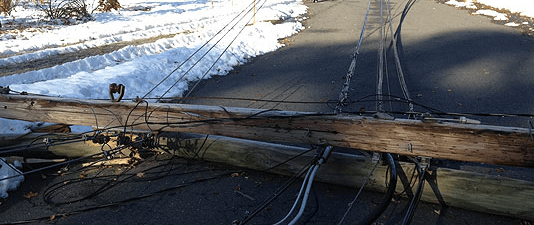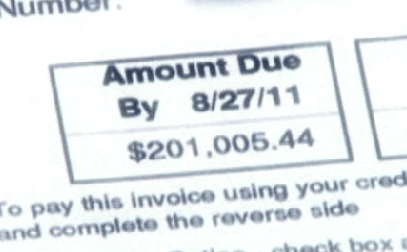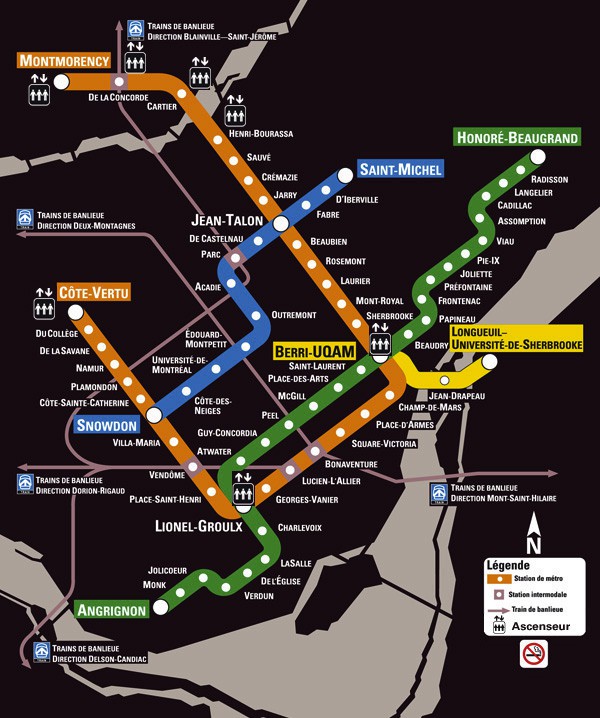 The House on Tuesday approved a five-year moratorium on new wireless taxes to keep states and localities from padding cell phone bills with new fees for wireless services.
The House on Tuesday approved a five-year moratorium on new wireless taxes to keep states and localities from padding cell phone bills with new fees for wireless services.
The non-controversial measure easily won bipartisan support and passed quickly on a voice vote with just one member of Congress rising to oppose the measure.
The Wireless Tax Fairness Act, sponsored by Representative Zoe Lofgren, a California Democrat and Trent Franks, an Arizona Republican, was heavily backed by the wireless industry. The legislation doesn’t stop local and state governments from imposing existing taxes, but would keep new taxes off cell phone bills if the measure becomes law. AT&T and Verizon spent heavily to promote the bill, noting customers are cutting back their cell phone and data plans in response to increasing taxes which run as high as 23% in some states.
Historically, state and local governments have seen cell phones as a luxury item, and have targeted them with taxes to help sustain government budgets. But as consumers increasingly turn to cell phones as landline replacements, the days of such technology being used mostly by the well-heeled are well past. Lofgren sees the burden of cell phone taxes on Californians, who have dropped traditional landline services in favor of smartphones and wireless broadband.
“We need to encourage the development and adoption of wireless broadband, not tax it out of existence,” said Lofgren.
An identical Senate companion bill was introduced by Senators Ron Wyden (D-Ore.) and Olympia Snowe (R-Maine), where it also seems to be getting bipartisan support.
Taxes on wireless services now meet or exceed those charged for alcohol and tobacco in several states.
| Rank | State | State-Local Wireless Rate | State-Local Sales Tax Rate | Federal Rate (USF) |
Combined Federal-State-Local-Rate |
|---|---|---|---|---|---|
| 1 | Nebraska | 18.64% | 7.00% | 5.05% | 23.69% |
| 2 | Washington | 17.95% | 9.00% | 5.05% | 23.00% |
| 3 | New York | 17.78% | 8.25% | 5.05% | 22.83% |
| 4 | Florida | 16.57% | 7.25% | 5.05% | 21.62% |
| 5 | Illinois | 15.85% | 9.00% | 5.05% | 20.90% |
| 6 | Rhode Island | 14.62% | 7.00% | 5.05% | 19.67% |
| 7 | Missouri | 14.23% | 7.23% | 5.05% | 19.28% |
| 8 | Pennsylvania | 14.08% | 7.00% | 5.05% | 19.13% |
| 9 | Kansas | 13.34% | 8.13% | 5.05% | 18.39% |
| 10 | Texas | 12.43% | 8.25% | 5.05% | 17.48% |
| 11 | Maryland | 12.23% | 6.00% | 5.05% | 17.28% |
| 12 | Utah | 12.16% | 6.80% | 5.05% | 17.21% |
| 13 | South Dakota | 12.02% | 5.96% | 5.05% | 17.07% |
| 14 | Arizona | 11.97% | 7.20% | 5.05% | 17.02% |
| 15 | DC | 11.58% | 5.75% | 5.05% | 16.63% |
| 16 | Tennessee | 11.58% | 9.25% | 5.05% | 16.63% |
| 17 | Arkansas | 11.07% | 8.38% | 5.05% | 16.12% |
| 18 | Oklahoma | 10.74% | 8.45% | 5.05% | 15.79% |
| 19 | North Dakota | 10.68% | 6.00% | 5.05% | 15.73% |
| 20 | California | 10.67% | 9.25% | 5.05% | 15.72% |
| 21 | New Mexico | 10.52% | 7.60% | 5.05% | 15.57% |
| 22 | Kentucky | 10.42% | 6.00% | 5.05% | 15.47% |
| 23 | Colorado | 10.40% | 7.56% | 5.05% | 15.45% |
| 24 | Indiana | 9.84% | 7.00% | 5.05% | 14.89% |
| 25 | South Carolina | 9.52% | 7.25% | 5.05% | 14.57% |
| 26 | North Carolina | 9.43% | 7.75% | 5.05% | 14.48% |
| 27 | Minnesota | 9.38% | 7.71% | 5.05% | 14.43% |
| 28 | Mississippi | 9.08% | 7.00% | 5.05% | 14.13% |
| 29 | New Jersey | 8.87% | 7.00% | 5.05% | 13.92% |
| 30 | Georgia | 8.57% | 7.50% | 5.05% | 13.62% |
| 31 | Vermont | 8.50% | 6.50% | 5.05% | 13.55% |
| 32 | Wisconsin | 8.34% | 5.55% | 5.05% | 13.39% |
| 33 | New Hampshire | 8.18% | 0.00% | 5.05% | 13.23% |
| 34 | Ohio | 7.95% | 7.13% | 5.05% | 13.00% |
| 35 | Wyoming | 7.94% | 5.50% | 5.05% | 12.99% |
| 36 | Iowa | 7.91% | 6.50% | 5.05% | 12.96% |
| 37 | Massachusetts | 7.81% | 6.25% | 5.05% | 12.86% |
| 38 | Hawaii | 7.75% | 4.00% | 5.05% | 12.80% |
| 39 | Alabama | 7.45% | 7.25% | 5.05% | 12.50% |
| 40 | Michigan | 7.27% | 6.00% | 5.05% | 12.32% |
| 41 | Maine | 7.16% | 5.00% | 5.05% | 12.21% |
| 42 | Connecticut | 6.96% | 6.00% | 5.05% | 12.01% |
| 43 | Alaska | 6.69% | 2.50% | 5.05% | 11.74% |
| 44 | Virginia | 6.56% | 5.00% | 5.05% | 11.61% |
| 45 | Louisiana | 6.28% | 9.00% | 5.05% | 11.33% |
| 46 | Delaware | 6.25% | 0.00% | 5.05% | 11.30% |
| 47 | West Virginia | 6.23% | 6.00% | 5.05% | 11.28% |
| 48 | Montana | 6.03% | 0.00% | 5.05% | 11.08% |
| 49 | Idaho | 2.20% | 6.00% | 5.05% | 7.25% |
| 50 | Nevada | 2.08% | 7.91% | 5.05% | 7.13% |
| 51 | Oregon | 1.81% | 0.00% | 5.05% | 6.86% |
| US Simple Average | 9.87% | 6.38% | 5.05% | 14.92% | |
| US Weighted Average | 11.21% | 7.42% | 5.05% | 16.26% | |
[For flat monthly taxes and fees, average monthly consumer bill is estimated at $48.16 per month per CTIA – The Wireless Association.]
Source: Committee on State Taxation, 50-State Study and Report on Telecommunications Taxation, May 2005. Updated July 2010 by Scott Mackey, Kimbell Sherman Ellis LLP using state statutes and regulations.
The taxes levied are supposed to pay for everything from school funding to law enforcement to 911 services. Some states impose 911 surcharges that local municipalities also charge themselves. The free-for-all takes an even bigger bite as consumers adopt more expensive plans that include wireless data.
How much consumers would save with the passage of the legislation is unclear, because existing taxes are not impacted. The measure also does nothing to stop the wireless industry from adding bill padding fees they conjure up themselves.
But the wireless industry still calls the House passage a “crucial step toward providing wireless subscribers with some much needed relief.”
[flv width=”520″ height=”308″]http://www.phillipdampier.com/video/Cell Phone Taxes 11-3-11.flv[/flv]
WKRG in Mobile, Ala. reports cell phone taxes are reaching an all-time high. Nearby viewers in Pensacola, Fla. probably weren’t too happy to learn Florida is rated the 4th highest-taxed-state. The Wireless Tax Fairness Act may prevent taxes from rising further, but it won’t stop existing fees. Also included: Rep. Franks’ statement on the House floor introducing the bill and urging fellow members to support it. (3 minutes)


 Subscribe
Subscribe






